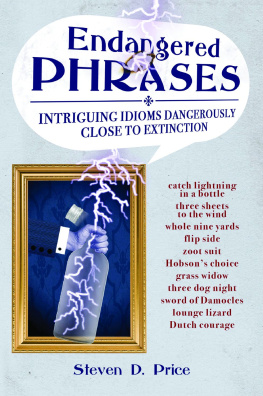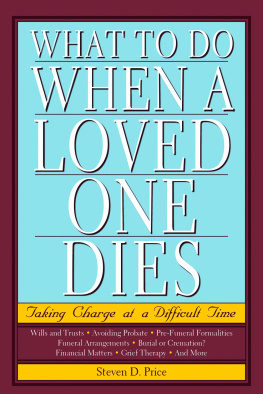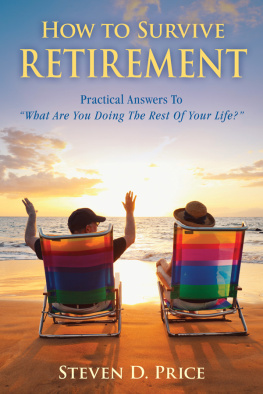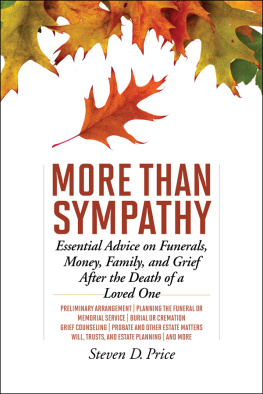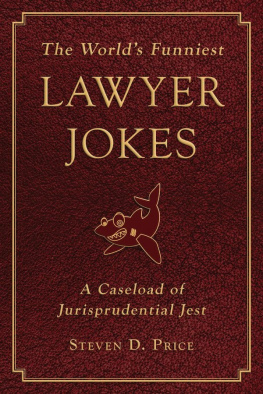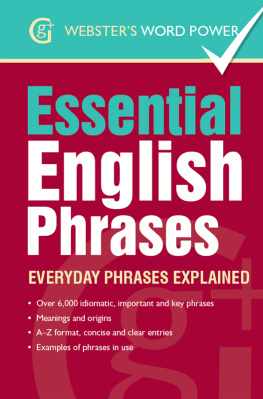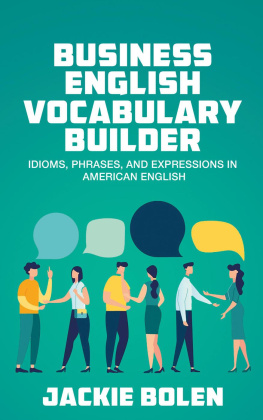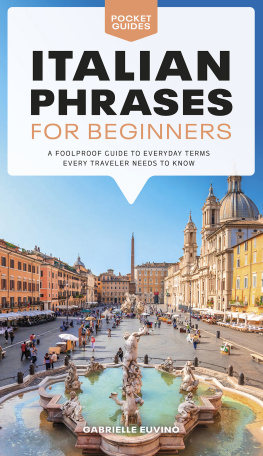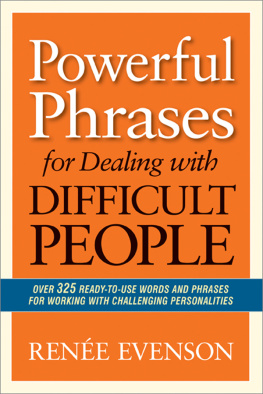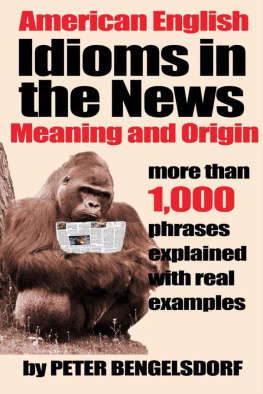
Endangered Phrases
Endangered Phrases
Intriguing Idioms Dangerously Close to Extinction
Steven D. Price

SKYHORSE PUBLISHING
To the memory of Jess Stein
Lexicographer, phrase-maker, and friend.
Copyright 2011 by Steven D. Price
All Rights Reserved. No part of this book may be reproduced in any manner without the express written consent of the publisher, except in the case of brief excerpts in critical reviews or articles. All inquiries should be addressed to Skyhorse Publishing, 307 West 36th Street, 11th Floor, New York, NY 10018.
Skyhorse Publishing books may be purchased in bulk at special discounts for sales promotion, corporate gifts, fund-raising, or educational purposes. Special editions can also be created to specifications. For details, contact the Special Sales Department, Skyhorse Publishing, 307 West 36th Street, 11th Floor, New York, NY 10018 or
Skyhorse and Skyhorse Publishing are registered trademarks of Skyhorse
Publishing, Inc., a Delaware corporation.
www.skyhorsepublishing.com
10 9 8 7 6 5 4 3 2 1
Library of Congress Cataloging-in-Publication Data is available on file.
978-1-61608-247-5
Printed in China
Introduction
T he success of Endangered Words , Simon Hertnons scholearly but eminently readable collection of rarely heard words, prompted Skyhorses publisher, Tony Lyons, to invite me to write one for phrases. However, rather than limit its contents to obsolete phrases and expressions that are the linguistic equivalent of embalmed, I was more interested in assembling a less erudite, more nostalgic and sociological book that focused as well on phrases and expressions that were on their way out. Language is organic, and vocabularies change over time. Phrases and expressions are created for a variety of reasons. Many enjoy a certain vogue and then fade into obscurity when circumstances change or another more popular word or phrase comes along. For example, Southern Californiaborn Val-Speak was all the rage forty years ago, but now youd be hard-pressed to find anyone whose response to an improbable situation is gag me with a spoon! (however, like the Dude, well duh! abides).
Regionalisms were a large part of our national linguistic panorama. Imaginative as all get-out (New Englands as accommodating as a hog on ice and the Souths faster than a cat lapping chain lightning), they started disappearing as migration and mass media caused our speech to become homogenized.
New technologies added to vocabularies. The radio gave us crystal set as well as such phrases made popular by radio personalities and shows as Fibber McGees closet and Quiz Kid. The phonograph produced broken record and flip side. Motion pictures gave us double feature, B movie, and phrases from the flicks like circle the wagons! From television came just the facts, Maam and peanut gallery. (No doubt some of todays computer-generated phrases will stay with us while others will vanish into cyberspace).
Classical education provided many phrases, but as schools stop offering such courses, the phrases are joining Latin as a dead language. A pity, because between Scylla and Charybdis and O tempora! O mores!, to cite just two such phrases, enrich anyones vocabulary.
The advent of political correctness has had an effect on speech. Where once most people didnt think twice about using Chinamans chance, black sheep, and lawn jockey or even such a seemingly innocuous phrase as stew zoo, the overt or implicit racial or gender slurs have just about caused the phrases to disappear, certainly from polite conversations.
One of the pleasures of assembling this book was to test whether a particular phrase was indeed endangered. I did so by bouncing it off younger friends and colleagues, and if the response was a Huh? or a blank stare, I knew I was onto something (I quickly stopped following up with You mean you never heard that one? which did nothing but confirm my advanced age). Many times came the answer, Yeah, Ive heard it, but I dont know what it means, and that was followed after I explained with Thats cool! Speaking of age, as I came across any number of phrases and expressions, I heard in my minds ear the voices of my parents and grandparents and others of their generation. Other people had the same reaction, and I suspect you will too.
I came across lots of endangered phrases in the course of reading and especially from watching television (thank you, Turner Classic Movies). Many books and cybersources were responsible for leads and contributions. Among the reference works were Brewers Dictionary of Fact and Fable, A Dictionary of Contemporary American Usage by Bergen Evans and Cornelia Evans, and Common Phrases and the Amazing Stories Behind Them by Max Cryer. Websites included The Phrase Finder (http://www.phrases. org.uk/index.html), Expressions&Sayings (http://users.tinyon-line.co.uk/gswithenbank/sayindex.htm), The Dog Hause (for animal phrases) (http://www.doghause.com/idioms.asp), Alpha Dictionary (http://www.alpha dictionary.com/slang/), and two indispensable sites for wordies: Wordsmith (http://www.word-smith.org) and The Word Detective (http://www.word-detective. com/).
Then there were the friends and relatives who were kind enough to suggest phrase candidates. Profound appreciation goes to Tony Ard, Mike Cohen, Kathy and Larry Burd, Dr. Jeff Buckner, Linda and Hank Beebe, Mari and Rich Goldman, Mandy Lorraine, Diane Maglaris, Dr. Mitchell Sweet, Melanie Garnett, Judy Goldman, John Sands, Lee Weisel, David Perl-mutter, Richard Berleth, Joan and Richard Liebmann-Smith, Margy Danson, Norman Fine, Jim Wofford, Sally Stith Bur-dette, Pat Daniel, and a particularly deep bow to Betsy Wesman.
Finally, my editor Sara Kitchens unfailing enthusiasm and keen eye contributed volumes to this volume, for which I am, in a phrase, beyond grateful.
A
above the salt (see below the salt)

as accommodating as a hog on ice: very disagreeable.
An old New England expression that imparts a very clear message: swine dont like being very cold any more than people do.

As the actress said to the bishop : a phrase used to point out or emphasize that a remark had a risqu double meaning, whether or not it was intended.
The phrase, first heard in Britain in the mid-20th century, contrasts a worldly actress and a very proper clergyman to whom such double meanings had to be pointed out. It also took the form of as the bishop said to the actress, as the schoolmaster said to the schoolgirl, and any number of other combinations.
Mae Wests repartees, such as replying to a mans saying, Ive heard so much about you with Yeah, but you cant prove it, coming from almost anyone else would qualify for an As the actress said to the bishop

Achilles heel: a vulnerable spot that leads to a downfall.
According to Greek mythology, anyone who was immersed in the River Styx, which marked the boundary of the underworld, became invulnerable. Thetis dipped her young son Achilles in the river, but she held him by his heel. Because her hand covered that part of his body, the water did not touch it and it became his one vulnerable spot. Achilles, who grew to become a great warrior, died during the Trojan War when an arrow struck his heel.
Next page
